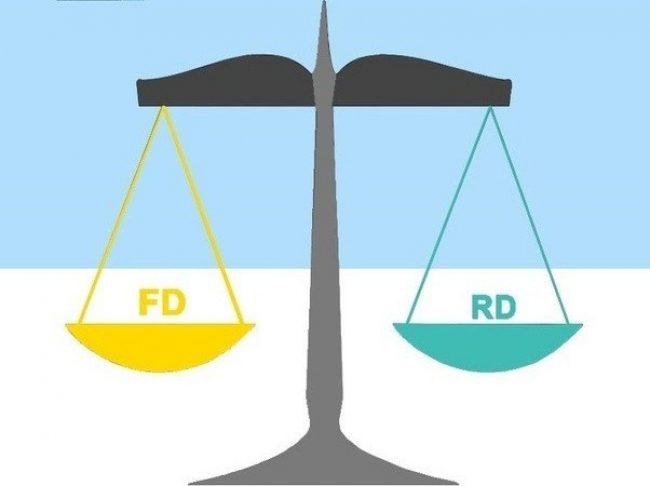Fixed Deposit (FD) is one of the most popular options when it comes to risk-free investments. Especially for this goal, when you want your capital to be saved for the future. Bank deposits are an easy and convenient way to save money and are one of the safest investment options, as well as guarantee returns. In addition to FD, banks also offer the option of Recurring Deposit deposits, which can be easily opened.
What’s the difference between FD and RD
FD, RD are two sides of the same coin. While both interest rates and benefits are the same in these deposit schemes. Yes, there is some difference between investment methods, minimum investment amount, tenure, etc.
What’s common between FD and RD
Both FD and RD are fixed-income investments, both of which offer guaranteed returns at maturity. The interest rates on FD and RD are also almost the same. FD and RD can be opened through the Internet or mobile banking in the bank branch. You can also open joint FD or RD. FD and RD can be opened in the name of spouse, children, parents, or other close family members. FD can invest in a minimum of 7 days and a maximum of up to 10 years. At least 6 months in RD and a maximum of 10 years. At least 5,000 to 10,000 investments in FD, while investment in RD ranges from Rs 100 to Rs 500.
Tax on RD and FD
The tax rules for FD and RD are the same. As per the existing rules, you have to pay income tax if interest exceeds Rs 10,000 in a financial year. Interest is added to your income, and tax is levied according to your income tax slab. Banks also deduct TDS if interest exceeds Rs 40,000 in a financial year. For senior citizens, the TDS limit is Rs 50,000.
Which one is better to Invest
Fixed Deposit: For those wishing to invest a lump sum amount, FD is a good option. It’s also a better option for those who are looking for cash regularly, as with FDs, you can choose pay-out siphoning monthly or three months. For instance, retirees can invest the benefits received at the time of retirement in long-term FDs. Salaried employees can also choose FD to invest their annual bonuses.
Recurring Deposit: People who don’t have a lump sum to invest can be a better option. For example, you can save regularly in RD and use it as your child’s school or college fee. If you want to save for international travel, putting money into RD is a good option.
Read also: Now get your CIBIL Score on WhatsApp for free: Read here What you have to do
RBI allows banks to issue electronic cards to overdraft account holders: Know about it in details
Are you out of Cash? Read here what to do next to avoid Cashless hassle
Image credit: hareepatti


